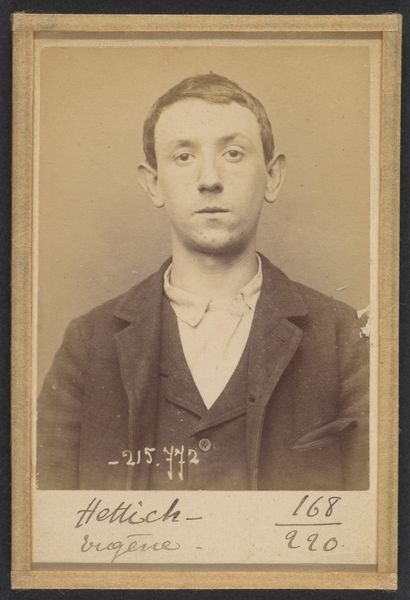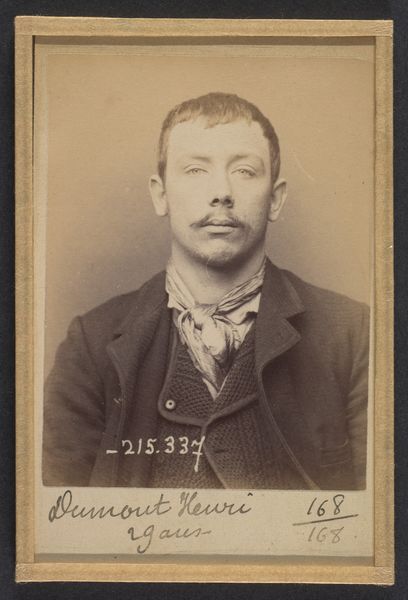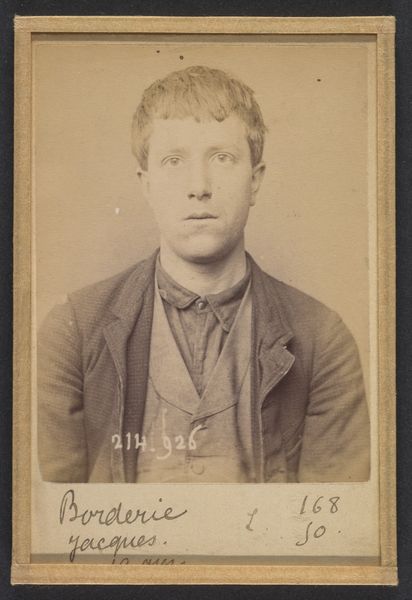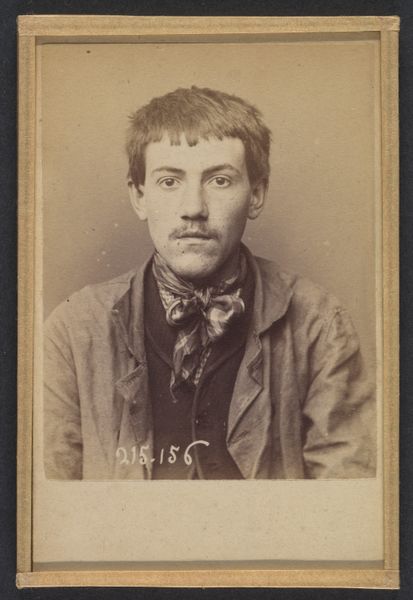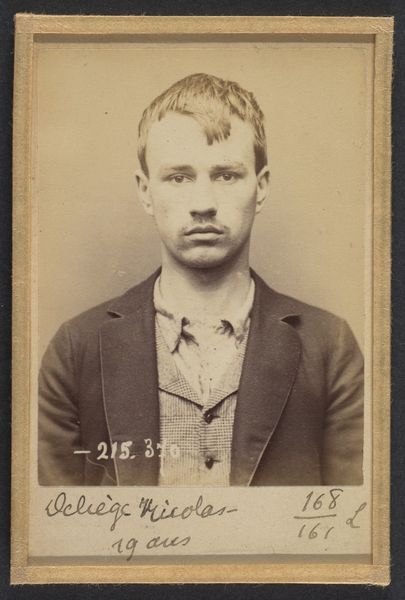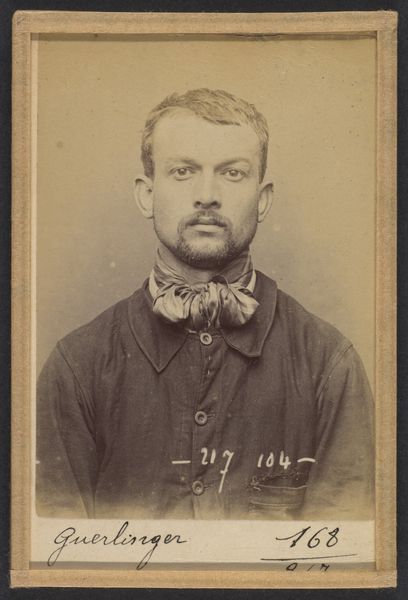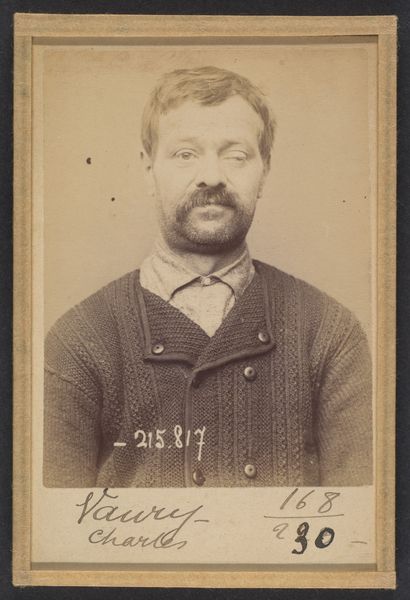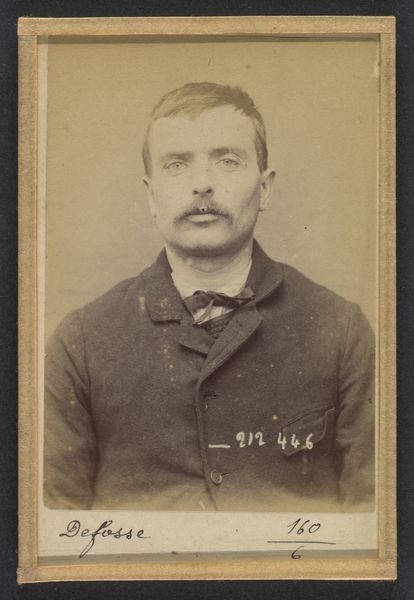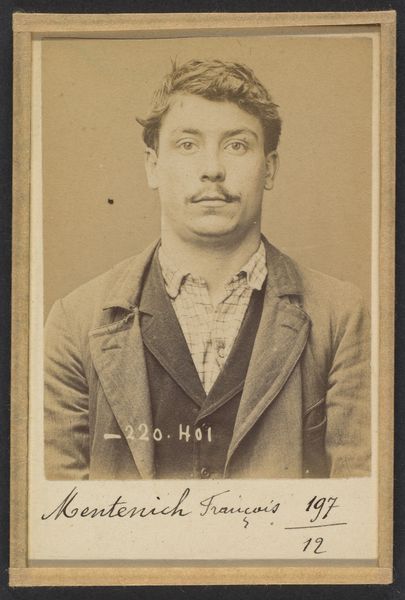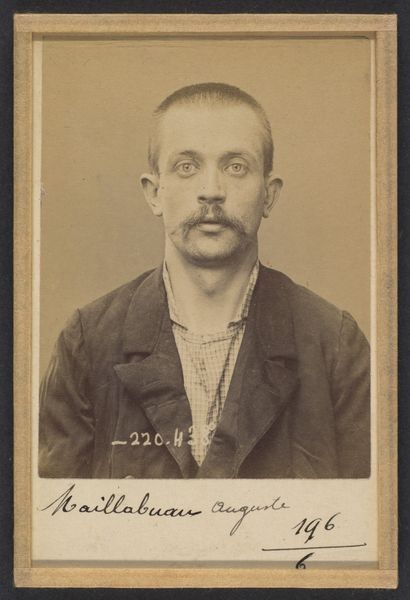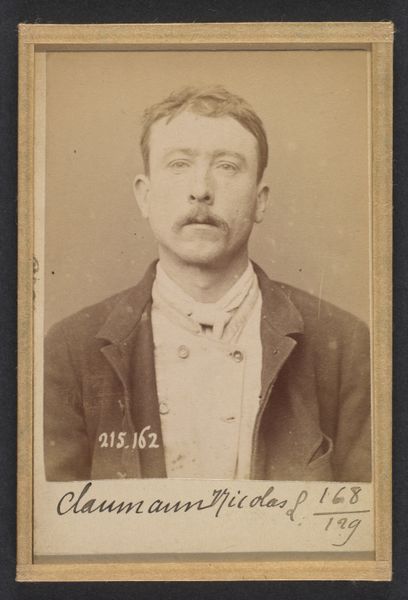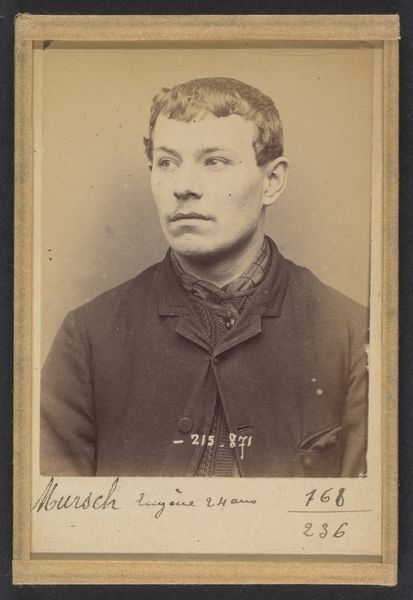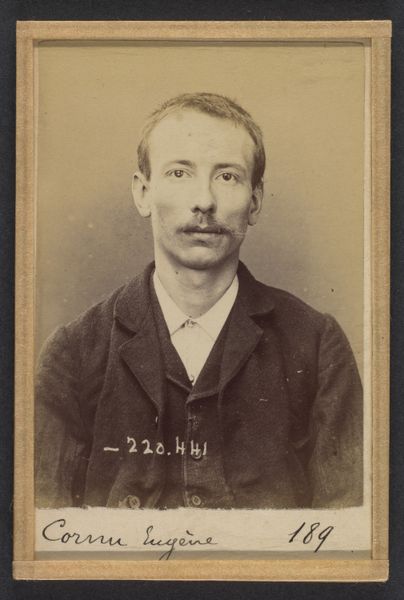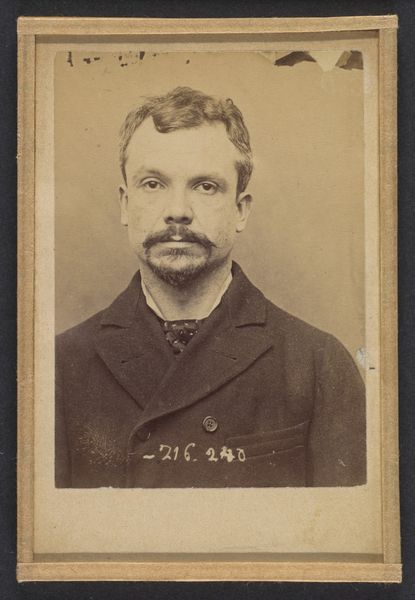
Zisly. Henri, Gabriel. 21 ans, né à Paris IVe. Employé de commerce. Anarchiste. 26/2/94. 1894
0:00
0:00
photography, gelatin-silver-print
#
portrait
#
photography
#
gelatin-silver-print
#
men
#
history-painting
Dimensions: 10.5 x 7 x 0.5 cm (4 1/8 x 2 3/4 x 3/16 in.) each
Copyright: Public Domain
Curator: Look at this—"Zisly. Henri, Gabriel. 21 ans, né à Paris IVe. Employé de commerce. Anarchiste. 26/2/94." Quite a mouthful for a title, no? An albumen print, dated 1894. It feels almost brutally direct. Editor: My first thought? That gaze. Utterly unsettling, almost accusing. There's a quiet defiance simmering under that rather ordinary exterior. The composition feels deliberately stark, emphasizing vulnerability. Curator: Well, the ‘artist,’ if we can call him that, was Alphonse Bertillon, a French police officer and biometrics researcher. This wasn't art for art's sake, of course, but part of his system for identifying criminals through photography and anthropometry. Bertillonage, they called it. Chilling. Editor: Indeed. The symbols and implied narrative here are incredibly loaded. "Anarchiste," right there in the title, immediately assigns a cultural weight, a kind of visual shorthand for chaos, resistance... fear, even. Notice his clothing, too—not ragged, but intentionally unassuming, a blend-in strategy, perhaps? The tied scarf, for example—does it whisper something rebellious? Curator: Exactly. The photo becomes a signifier, stripping Henri of individuality in favor of categorisation. It reminds me of those early mugshots, completely devoid of empathy. Do you think he's looking straight at us? It feels intimate, and that's what makes it so uneasy. The gaze implicates us in his story, regardless of time. Editor: Absolutely. This man’s vulnerability transforms the photograph into more than just a record. It touches upon so many loaded and relevant topics about visibility, categorisation, control... How are individual identities overwritten? Is this not an allegory for so many lost and marginalized? This speaks volumes, still. Curator: So true. Bertillon probably saw this only as a scientific achievement. But we know now how deeply subjective supposedly objective 'science' really is. Henri becomes a tragic archetype. The price paid when ‘progress’ forgets what truly matters: human lives. Editor: I’m left wrestling with this question of who's really on display here—Henri Zisly, or the systems attempting to define him? It’s an uncomfortable thought. I suspect it is a dialogue that's never truly ended.
Comments
No comments
Be the first to comment and join the conversation on the ultimate creative platform.
